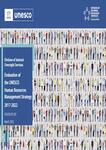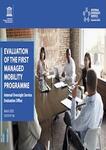Page Header

Downloads:
1
Evaluation of UNESCO’s Work on Culture and Sustainable Development
Overview
The relationship between culture and sustainable development has been the subject of discussions over three decades, culminating in four United Nations General Assembly resolutions on the topic that confirm culture’s role as being both an enabler and a driver of sustainable development, and that call for the mainstreaming of culture in the international development agenda. UNESCO, being the specialized UN agency for culture, has a key role to play, inter alia, in providing evidence for the linkages between culture and sustainable development, in demonstrating how these linkages can be supported through policy and implementation, and in promoting and making them visible. It exercises this role through its policy and normative work at global level, including its efforts to promote the role of culture in the implementation of the recently adopted 2030 Agenda for Sustainable Development, and by supporting programmes and projects at national level.Report Details
| Year Published | |
| Type | |
| Joint | No |
| Partner/s | N/A |
| SDG/s | |
| Consultant name | |
| Agency Focal Point | Martina Rathner |
| Focal Point Email | m.rathner@unesco.org |
| Managed by Independent Evaluation Office | Yes |
| Geographic Scope | Global |
YOU 'RE READING
Evaluation of UNESCO’s Work on Culture and Sustainable Development









